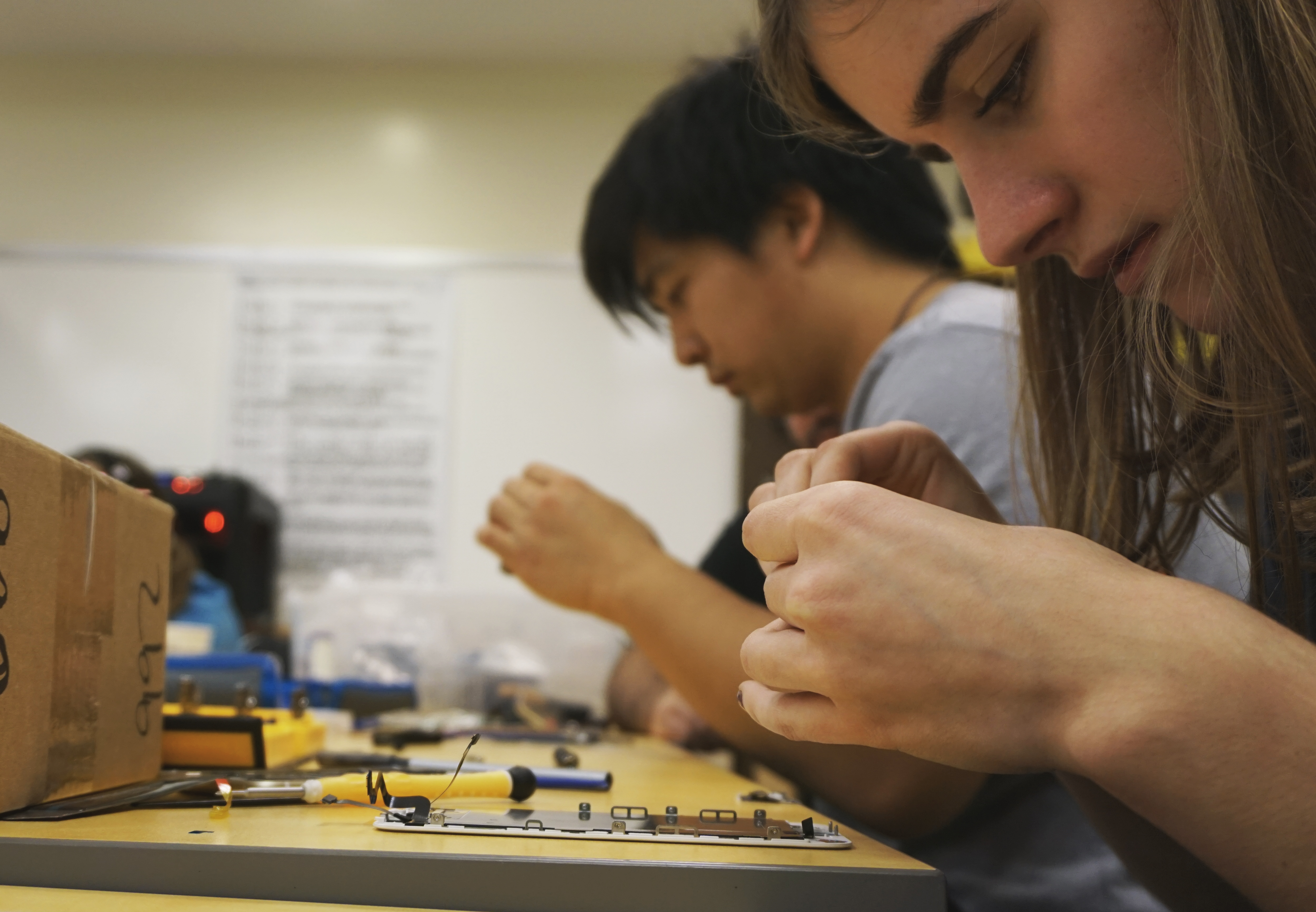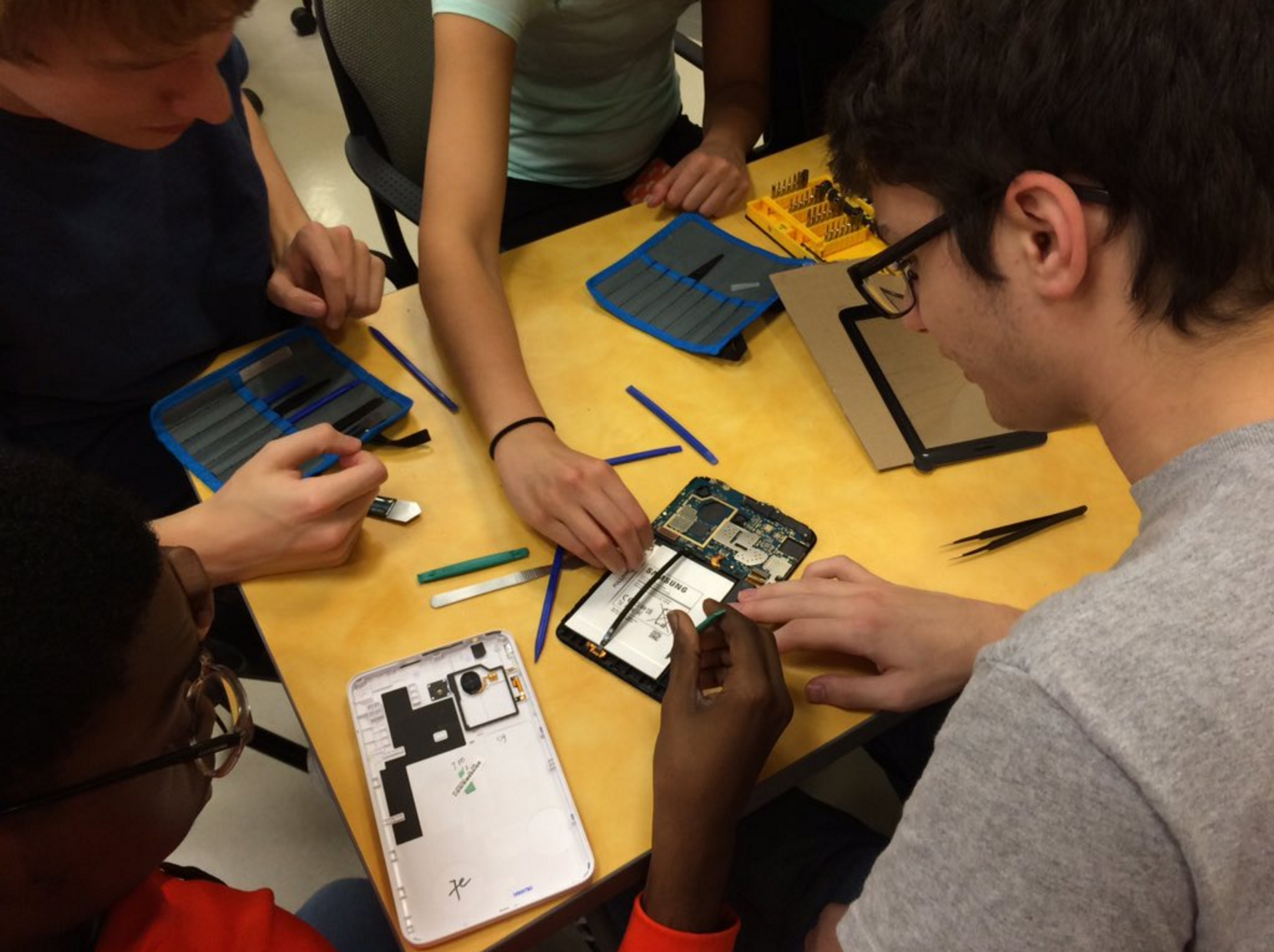I was awarded a $34,000 grant through UMD’s Office of Sustainability to create a project called “Sustainable Technologies.” The first iteration of the grant term was focused on getting students, staff, faculty, and members in the Prince George’s County community to come in and learn to fix their broken mobile devices.

Since 2007, people in the United States have discarded 426,000 mobile phones on a daily basis. The replacement of these devices — which are owned by nearly 100% of the student population at the University of Maryland, a statistic that has been true of college students across the country over the last six years — poses a massive challenge for environmental sustainability. Similarly, our university is often complicit in the larger outcomes of planned obsolescence in the large amounts of electronic waste we produce as broken and outdated technologies flow off campus and are replaced by newer devices sooner than they might need to be. This project sought to intervene in one of the greatest challenges to sustainability we face in the digital age.
This project guided the campus and local community through repairing their technologies as a way to intervene in e-waste and encourage participants to hold on to their devices for a longer period of time. It also sought to intervene in giving agency to students who might use their mobile devices as their primary interface for education (many families in PG County do not have in-home access to a laptop or desktop computer).

A pilot version of this project was first launched in the fall of 2015 at a small scale with the freshmen in the Design Cultures & Creativity Program. We worked in four small workshops of 15 students each to repair mobile phone and tablet screens. We coupled these workshops with seven group projects to repair broken technologies (from a GPS device to a computer monitor). This was then repeated with a group of ten graduate students from across the campus in the Spring of 2016. The feedback of the 70 students involved demonstrated that it was a resounding success. The initial workshops were integrated into a course, HDCC 105, and students noted overwhelmingly that this was there favorite part of the class. Students noted, “Now, if a technology of mine breaks, I’m far more likely to try and fix it rather than replace it immediately,” and “I used to buy a new mobile phone every year. Now, I want to try and hold on to my current phone as long as I can.” Students remarked that the practice of simply opening up a technology they had never seen inside like an iPhone or iPad helped them demystify the device. Each one felt like they had the necessary skill set to attempt a repair on their own after the short workshop. Students at both the graduate and undergraduate level endorsed a scaling up of this project to the wider campus community.
Throughout the 2017-2018 academic year, we offered eight workshops on mobile phone repair, screen repair, battery repair, and laptop upgrades. The workshops brought in 84 participants. Based on this first run with repair workshops on our campus, it was a resounding success, with 100% of participants noting that they left with a “greater confidence in working with and fixing their own technologies” in the future. With this confidence, these participants noted that they would likely hold on to their technologies longer, thus having a direct impact on their consumer practices, social influence, and environmental footprint.